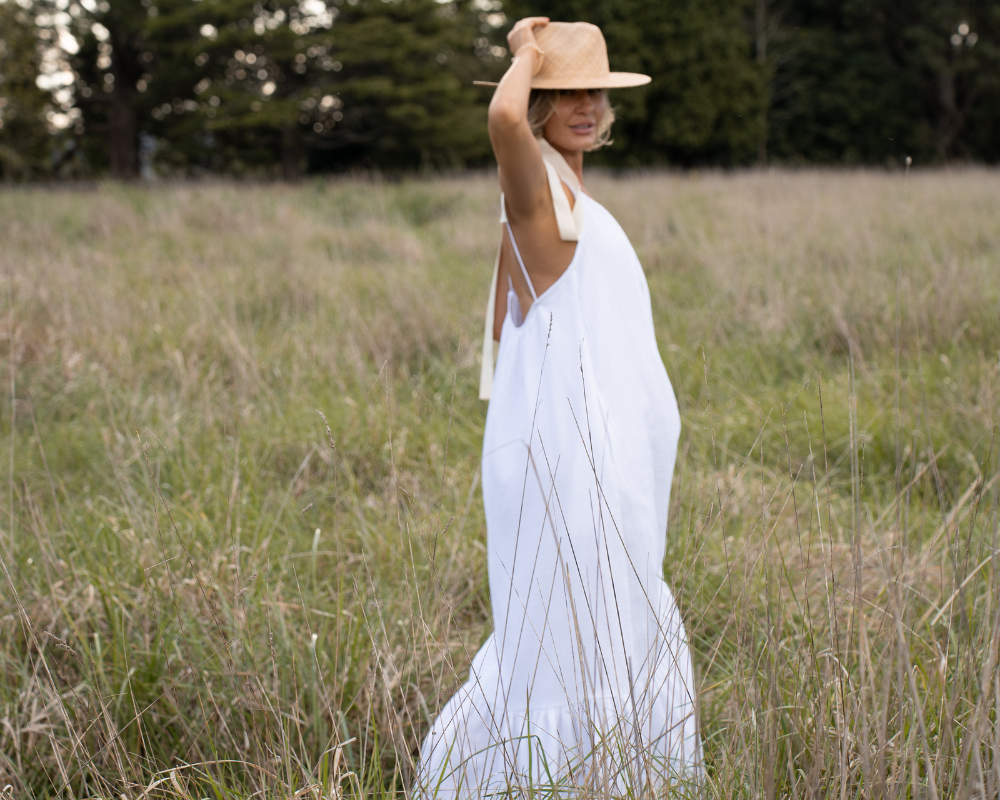One of the first and most essential elements in clothing design is the fabric. For me this is where my responsibility as a brand starts. How I’m involved in impacting the environment around me is something that I take seriously. After twenty years in the clothing industry it is time to get real and take responsibility for the clothes that I make.
Choose Well
It is fair to say that organic cotton garments are often going to be more expensive than regular cotton garments but thankfully for many of us we are able to choose how we spend our wardrobe dollars. The truth is though that conventional cotton often costs too little. If you were presented with more information at the checkout would you think more about the farmers and the environment over quantity and a fast-fuelled fashion fix? The disconnect between our values and how we actually shop isn’t something new because shopping makes us feel good. It can make you feel even better when you feel you’ve got a bargain, I get it!
If you knew that according to the World Health Organisation that reducing the environmental effects of dangerous pesticides could prevent one in four child deaths or that an estimated 1 million to 5 million cases of pesticide poisonings occur every year, resulting in 20,000 fatalities among agricultural workers, would you use your buying power differently? Probably.
The Truth About Cotton
Conventional cotton production is heavily associated with the intensive use of hazardous pesticides that damage the soil and contaminate water supplies. Exposure is most often a problem for poor rural populations. Families live and work near fields where the chemicals are stored which means that children are particularly vulnerable. Pesticides, hazardous by design, when improperly used can cause, cancer, birth defects, and damage to the nervous system in humans.
"There is no beauty in the finest cloth if it makes hunger and unhappiness." Mahatma Gandhi

An Organic Alternative
Organic cotton is farmed without the use of synthetic chemicals such as fertilisers or pesticides and grown without using genetically modified seeds. Using organic, open pollinated seed varieties, which farmers can save and share means that the farmers are not sold seeds that need heavy use of fertilisers and pesticides, as well as intensive irrigation. Conventional crop failure is frequent and pushes farmers into debt and often suicide.
India is by far the largest producer of organic cotton. Using methods and materials that have a minimal impact on the environment, organic farming aims to replenish and maintain soil fertility. To improve soil health and deter pests, organic cotton farmers often grow food crops alongside cotton, providing a direct source of fresh, organic food and improving farmer financial security. Water consumption of organic cotton is lower than that of conventional cotton because organic cotton receives little irrigation, relying mostly on natural rainfall. Research has also shown that soils with high organic content can hold up to 30% more water.

When you choose to buy organic cotton over conventional cotton you are helping the farmers in developing countries like India maintain and practice sustainable farming methods. Knowledge and spreading the word about the benefits of organic cotton feels like just one small part of what I can do to change the culture of how we buy clothes. My commitment at Twill & Tee is to use fabrics that have been produced fairly, ethically and that won’t pollute the planet.
Jo x
Visit the World Health Organisation for more information on the effects of pesticides http://www.who.int/ceh/publications/pestpoisoning.pdf and http://aboutorganiccotton.org/ for more information about the benefits of organic cotton farming.



